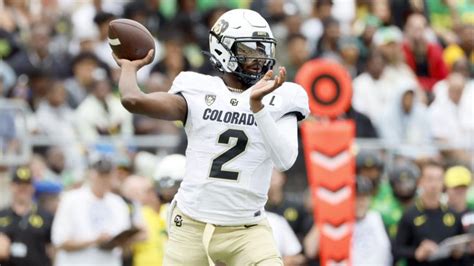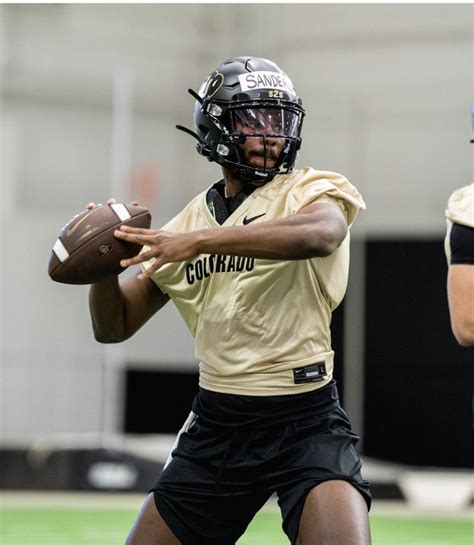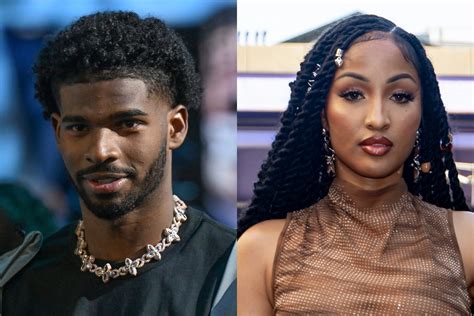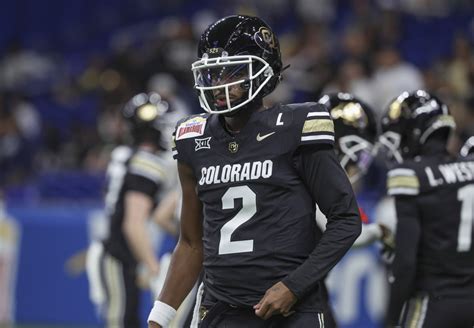
A war of words has erupted between former ESPN host Jemele Hill and Stephen A. Smith, with Hill unleashing sharp criticism of Smith’s on-air persona and impact, sparking a heated debate about authenticity and representation in sports media.
Jemele Hill, formerly of ESPN, has publicly criticized Stephen A. Smith, one of the network’s most prominent and highest-paid personalities, igniting a feud that delves into questions of authenticity, on-air character, and the influence of prominent Black voices in sports media. Hill’s critique, delivered on her podcast and amplified across social media, challenges Smith’s on-screen persona and questions the messages it sends, particularly to young, aspiring Black journalists. This clash highlights the complex dynamics within ESPN and the broader sports media landscape, where personalities often walk a fine line between entertainment, analysis, and personal expression. The controversy has quickly become a focal point for discussions about representation, the role of authenticity in broadcasting, and the responsibilities that come with a platform as significant as Smith’s.
Hill’s criticism was not a spur-of-the-moment outburst but appears to be a culmination of long-held views about Smith’s approach. She accuses him of cultivating a persona that, in her view, prioritizes sensationalism over substance and perpetuates harmful stereotypes. Her comments have resonated with some observers who have long questioned the nature of Smith’s on-air antics, while others have defended Smith as a shrewd entertainer who understands the demands of the business. The situation brings to the forefront the inherent tensions between generating engaging content and maintaining a sense of responsibility to the communities being represented.
Hill’s remarks have touched a nerve within ESPN, where Smith’s presence is both influential and lucrative. His bombastic style and willingness to engage in heated debates have made him a ratings draw, but they have also made him a lightning rod for criticism. The network has so far remained publicly silent on the matter, likely hoping that the controversy will dissipate without further escalating the conflict. However, the situation raises larger questions about the editorial direction of ESPN and the extent to which it encourages or discourages certain types of on-air behavior.
The feud underscores a broader conversation about the role of Black commentators in sports media. As prominent figures, they often face the pressure of representing their communities while also navigating the demands of a predominantly white industry. Hill’s critique suggests that Smith’s approach may, in her opinion, fall short of that responsibility, contributing to a debate that has been ongoing for years regarding the balance between entertainment, representation, and authenticity in sports broadcasting.
Hill initiated the public sparring by questioning the authenticity of Smith’s on-air persona. According to Yahoo Sports, the core of Hill’s argument revolves around her perception that Smith’s on-screen character is contrived and deviates significantly from his true self. She suggested that this manufactured persona prioritizes sensationalism and conflict over genuine analysis and insight.
“I know Stephen A. Smith, and I know that the person he is on television is not the person he is in real life,” Hill stated, implying a disconnect between Smith’s public image and his private character. This assertion is central to her critique, as it raises questions about the integrity of Smith’s commentary and the impact of his on-air behavior on viewers. Hill elaborated on her concerns, suggesting that Smith’s exaggerated reactions and confrontational style are not reflective of his actual beliefs or personality, but rather a calculated performance designed to generate attention and ratings.
Hill further suggested that Smith’s approach perpetuates negative stereotypes and sends the wrong message to aspiring Black journalists. She expressed concern that his emphasis on conflict and sensationalism could lead young commentators to believe that this is the only way to succeed in the industry. In her view, Smith’s influence could potentially undermine efforts to promote more nuanced and thoughtful analysis in sports media.
“I think it’s harmful, because I know there are young, Black journalists who watch him and think that’s the way to make it,” Hill explained. She argued that Smith’s success should not be equated with authenticity or genuine insight, but rather with a willingness to play a certain role for the sake of entertainment. Her comments reflect a broader debate about the role of Black commentators in sports media and the responsibility they have to represent their communities in a positive and authentic light.
Smith has yet to respond directly to Hill’s specific criticisms, but his silence has been interpreted by some as an indication that he may be taking her comments seriously. Others have speculated that he is waiting for the right moment to address the issue, perhaps on his own show or through another public platform. Regardless of his intentions, the controversy has undoubtedly put him in a difficult position, as he now faces scrutiny from both inside and outside the industry.
Hill’s critique has ignited a broader discussion about the state of sports media and the pressures faced by commentators, particularly those from marginalized communities. Some have praised her for speaking out against what she sees as harmful trends in the industry, while others have criticized her for attacking Smith personally. The debate highlights the challenges of balancing entertainment with responsible journalism and the importance of holding prominent figures accountable for their words and actions.
The controversy also raises questions about the role of ESPN in shaping the on-air personas of its commentators. As one of the largest sports networks in the world, ESPN has a significant influence on the way sports are covered and discussed. Some critics argue that the network encourages sensationalism and conflict in order to boost ratings, while others maintain that it simply reflects the passions and opinions of its commentators. Regardless of its intentions, ESPN’s role in this debate cannot be ignored, as it ultimately bears responsibility for the content it produces and the messages it sends to viewers.
The feud between Hill and Smith is unlikely to subside anytime soon, as both figures are known for their strong opinions and willingness to engage in public debate. It remains to be seen how Smith will respond to Hill’s criticisms and whether ESPN will take any action to address the controversy. In the meantime, the debate will continue to unfold, prompting further discussions about the state of sports media and the responsibilities of its commentators. The implications of this dispute are far-reaching, touching on issues of representation, authenticity, and the power of media personalities to shape public opinion.
The exchange between Hill and Smith also comes at a time when ESPN is undergoing significant changes, including layoffs and a shift in programming strategy. The network is facing increasing competition from streaming services and other digital platforms, forcing it to adapt to a rapidly evolving media landscape. The controversy surrounding Hill and Smith could potentially exacerbate these challenges, as it highlights divisions within the network and raises questions about its editorial direction.
Furthermore, the public nature of this dispute adds another layer of complexity to the situation. In the age of social media, commentators are under increasing pressure to engage with fans and respond to criticism. This can lead to heated exchanges and public feuds, which can be both entertaining and damaging. The challenge for networks like ESPN is to manage these interactions in a way that preserves the integrity of their programming and protects the reputations of their commentators.
In conclusion, the feud between Jemele Hill and Stephen A. Smith is a significant event in the world of sports media. It raises important questions about authenticity, representation, and the responsibilities of commentators. It also underscores the challenges faced by networks like ESPN in a rapidly evolving media landscape. As the debate continues to unfold, it will be important to consider the broader implications of this dispute and its potential impact on the future of sports broadcasting.
Expanded Context and Analysis:
Jemele Hill’s critique of Stephen A. Smith extends beyond a simple disagreement over style or personality. It touches upon deeply rooted issues concerning the representation of Black voices in mainstream media and the potential compromises individuals make to achieve success within those systems. To fully understand the context of this feud, it’s important to examine the careers of both individuals, the history of Black representation in sports media, and the evolving landscape of ESPN itself.
Jemele Hill’s Perspective:
Hill’s career has been marked by a commitment to social justice and a willingness to challenge the status quo. She gained prominence at ESPN for her insightful commentary and willingness to address controversial topics, including race and politics. However, her outspokenness also made her a target for criticism, particularly from those who felt that sports should remain separate from political issues. In 2017, she faced suspension from ESPN after calling then-President Donald Trump a “white supremacist” on Twitter. This incident highlighted the tension between Hill’s personal beliefs and the network’s desire to maintain a neutral stance on political matters.
Since leaving ESPN, Hill has continued to advocate for social justice through her writing, podcasting, and public speaking. Her critique of Stephen A. Smith can be seen as an extension of her broader commitment to holding individuals accountable for their words and actions. She believes that prominent figures like Smith have a responsibility to use their platforms to promote positive change and represent their communities in an authentic and responsible manner.
Stephen A. Smith’s Perspective:
Smith has cultivated a highly successful career at ESPN by embracing a bombastic and often confrontational style. He is known for his passionate debates, over-the-top reactions, and willingness to challenge conventional wisdom. His approach has made him a ratings draw, but it has also drawn criticism from those who find his style to be abrasive and superficial.
Smith has often defended his approach by arguing that he is simply giving the audience what they want. He believes that his role is to entertain and generate discussion, even if that means pushing boundaries and provoking controversy. He has also argued that his success is a testament to his hard work and dedication, and that he has earned the right to express his opinions freely.
Historical Context of Black Representation in Sports Media:
The history of Black representation in sports media is one of struggle and perseverance. For many years, Black commentators were largely excluded from mainstream broadcasting, and those who did manage to break through often faced discrimination and limited opportunities. Pioneers like Jackie Robinson, who became a commentator after his baseball career, paved the way for future generations of Black broadcasters.
In recent decades, there has been a growing effort to diversify sports media and provide more opportunities for Black commentators. However, challenges remain, as Black broadcasters often face pressure to conform to certain stereotypes or avoid discussing controversial topics. The debate between Hill and Smith highlights the ongoing tensions between the desire for greater representation and the need for authenticity and independent thought.
ESPN’s Evolving Landscape:
ESPN has undergone significant changes in recent years, as it faces increasing competition from streaming services and other digital platforms. The network has been forced to adapt to a rapidly evolving media landscape, which has led to layoffs, programming changes, and a greater emphasis on digital content.
The controversy surrounding Hill and Smith comes at a time when ESPN is already facing numerous challenges. The network is under pressure to maintain its ratings, attract younger viewers, and navigate the increasingly polarized political climate. The feud between Hill and Smith could potentially exacerbate these challenges, as it highlights divisions within the network and raises questions about its editorial direction.
The Role of Authenticity in Broadcasting:
The debate between Hill and Smith raises important questions about the role of authenticity in broadcasting. Is it necessary for commentators to be completely genuine and transparent in their on-air personas, or is it acceptable for them to adopt a certain character for the sake of entertainment?
There is no easy answer to this question. Some viewers value authenticity and appreciate commentators who are willing to express their true opinions, even if those opinions are controversial. Others prefer commentators who are entertaining and engaging, regardless of whether they are being completely genuine.
Ultimately, the balance between authenticity and entertainment is a matter of personal preference. However, it is important for viewers to be aware of the potential for commentators to adopt a certain persona for the sake of ratings or other considerations.
The Responsibility of Media Personalities:
Hill’s critique of Smith also raises questions about the responsibility of media personalities, particularly those who have a large following. Do these individuals have a responsibility to use their platforms to promote positive change and represent their communities in a responsible manner?
Again, there is no easy answer to this question. Some argue that media personalities have a moral obligation to use their platforms for good, while others maintain that they are simply entertainers and should not be held to a higher standard.
However, it is clear that media personalities have a significant influence on public opinion, and that their words and actions can have a real impact on society. Therefore, it is important for them to be mindful of the messages they are sending and the potential consequences of their behavior.
Conclusion:
The feud between Jemele Hill and Stephen A. Smith is a complex and multifaceted issue that touches upon a wide range of topics, including representation, authenticity, and the responsibilities of media personalities. It is a debate that is likely to continue for some time, as both figures are known for their strong opinions and willingness to engage in public discourse. As the debate unfolds, it will be important to consider the broader implications of this dispute and its potential impact on the future of sports broadcasting. The situation serves as a reminder of the powerful influence media figures wield and the importance of considering the messages they convey, particularly concerning representation and authenticity. The controversy underscores the need for ongoing dialogue about the evolving dynamics within sports media and the responsibilities that come with such a prominent platform.
Five Frequently Asked Questions (FAQ) related to the news:
1. What exactly did Jemele Hill say about Stephen A. Smith that sparked the feud?
Jemele Hill publicly criticized Stephen A. Smith, stating that his on-air persona is inauthentic and that the character he portrays on television is not the same person he is in real life. She also expressed concerns that his emphasis on conflict and sensationalism could negatively influence young, aspiring Black journalists, leading them to believe that this is the only way to succeed in the industry. Hill suggested Smith’s approach perpetuates negative stereotypes and prioritizes entertainment over genuine insight.
2. What has been Stephen A. Smith’s response to Jemele Hill’s criticisms?
As of the last update, Stephen A. Smith has not directly responded to Jemele Hill’s specific criticisms. His silence has been interpreted in various ways, with some speculating that he is carefully considering his response, while others believe he is waiting for the right platform or moment to address the issue.
3. How could this feud impact ESPN, considering both Jemele Hill and Stephen A. Smith have ties to the network?
The feud could potentially exacerbate existing challenges at ESPN, especially as the network navigates changes in programming and the media landscape. The dispute might highlight internal divisions and raise questions about the network’s editorial direction and the types of on-air behavior it encourages or tolerates. Additionally, it could affect ESPN’s image, particularly concerning its commitment to diversity, authenticity, and responsible representation.
4. What are the broader implications of this feud for Black commentators in sports media?
The feud highlights the complex dynamics faced by Black commentators in sports media, who often navigate the pressure of representing their communities while also meeting the demands of a predominantly white industry. It raises questions about the balance between entertainment, representation, and authenticity, and the potential compromises individuals might make to achieve success. The debate prompts discussions about the role of Black commentators in promoting positive change and serving as responsible role models.
5. What is the significance of the timing of this feud, considering the changes happening within ESPN and the media landscape in general?
The timing of this feud is significant because ESPN is currently undergoing significant changes, including layoffs, shifts in programming strategy, and increased competition from streaming services. The controversy could add to these challenges by highlighting internal divisions and raising questions about the network’s editorial direction. Moreover, the feud underscores the broader pressures on media personalities in the age of social media, where they are increasingly expected to engage with fans and respond to criticism, potentially leading to heated exchanges and public disputes.









